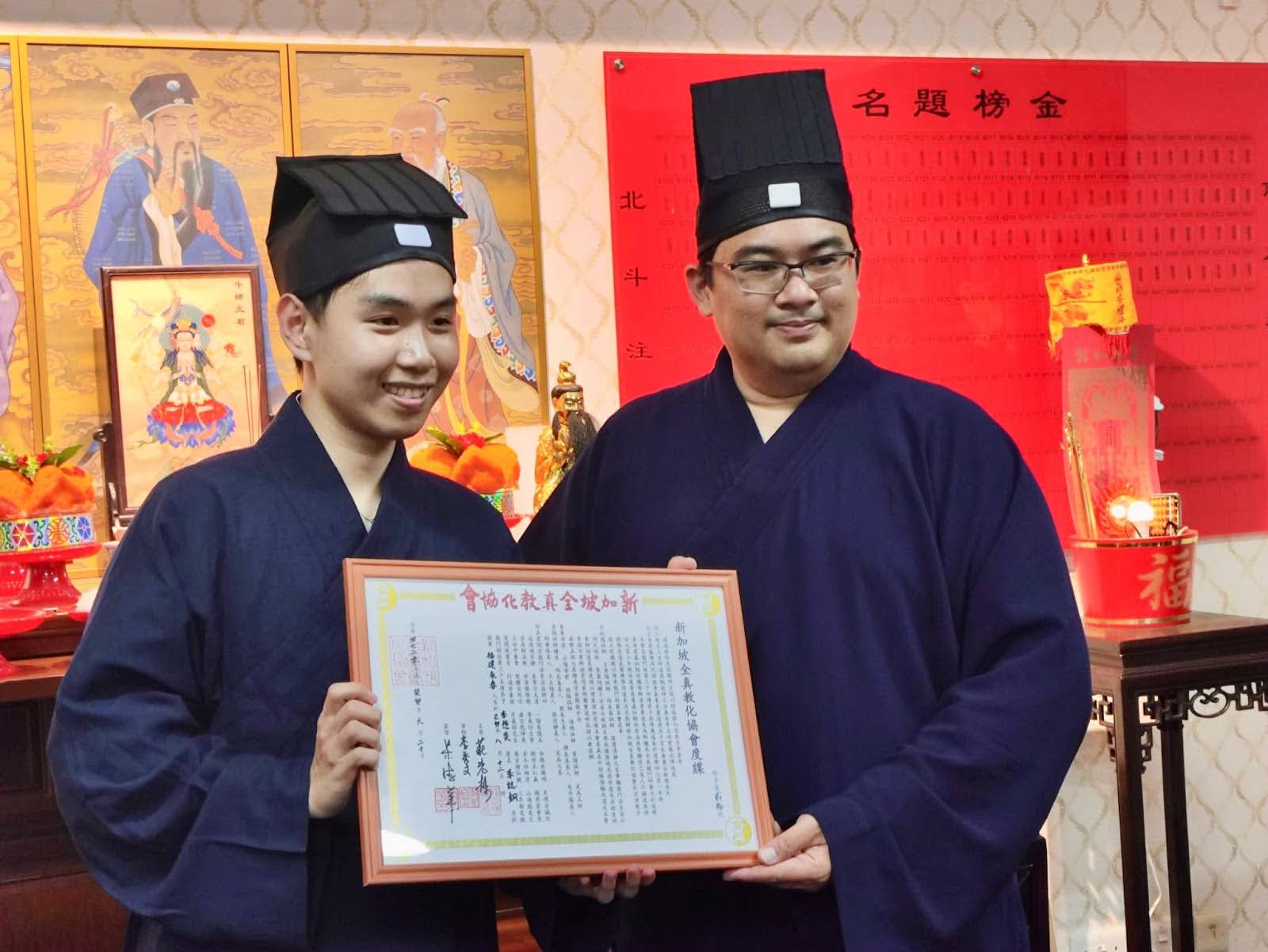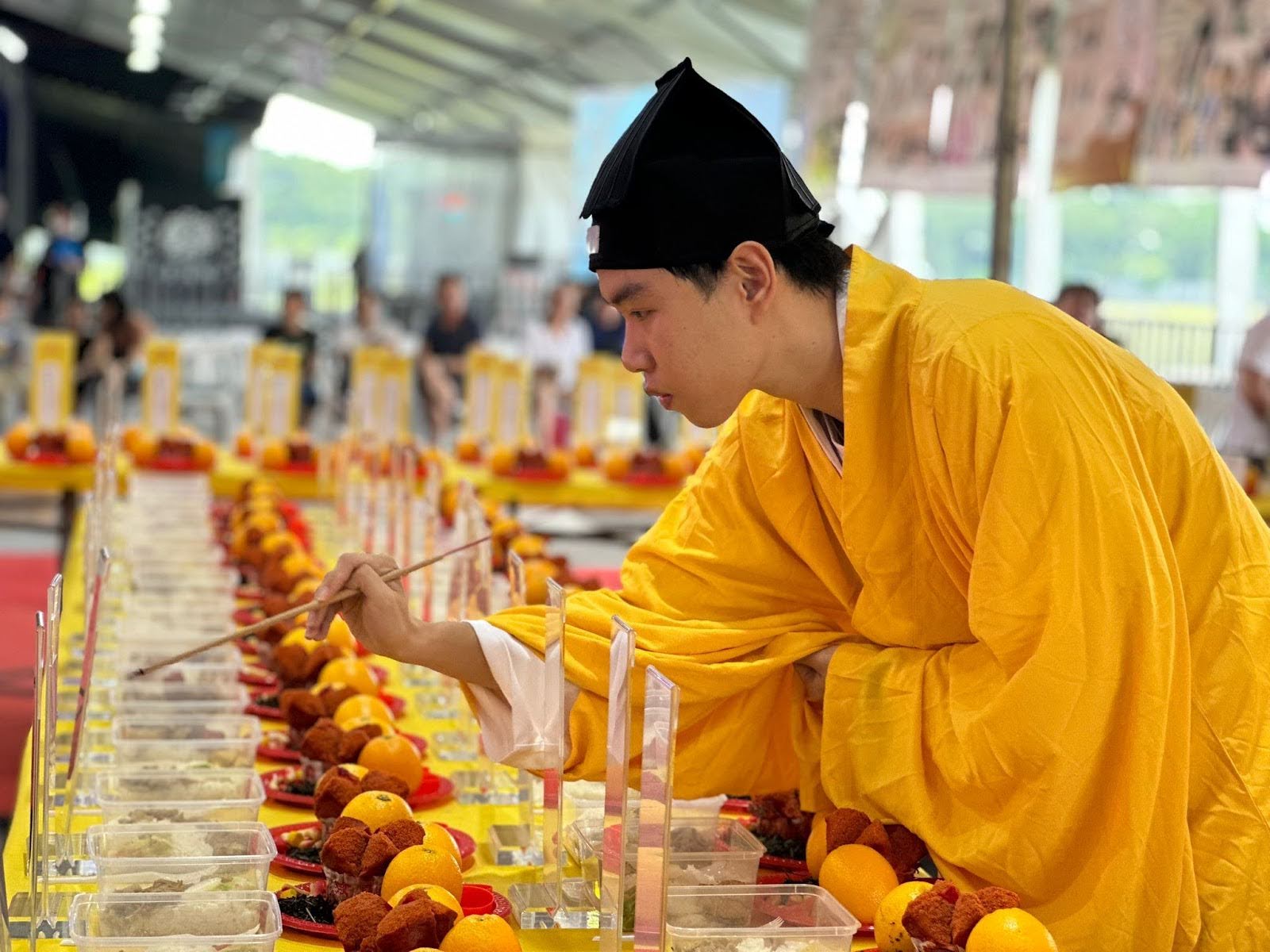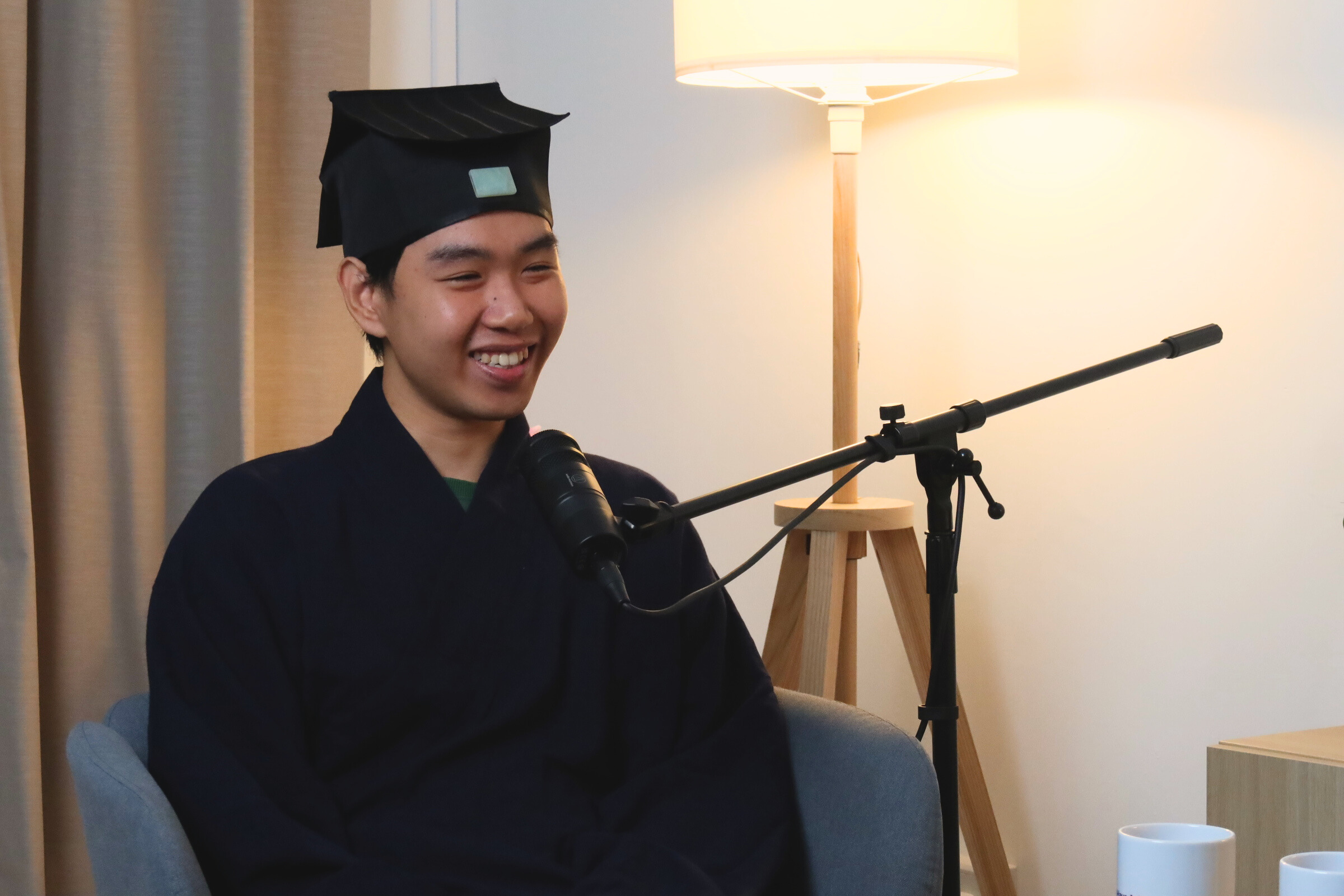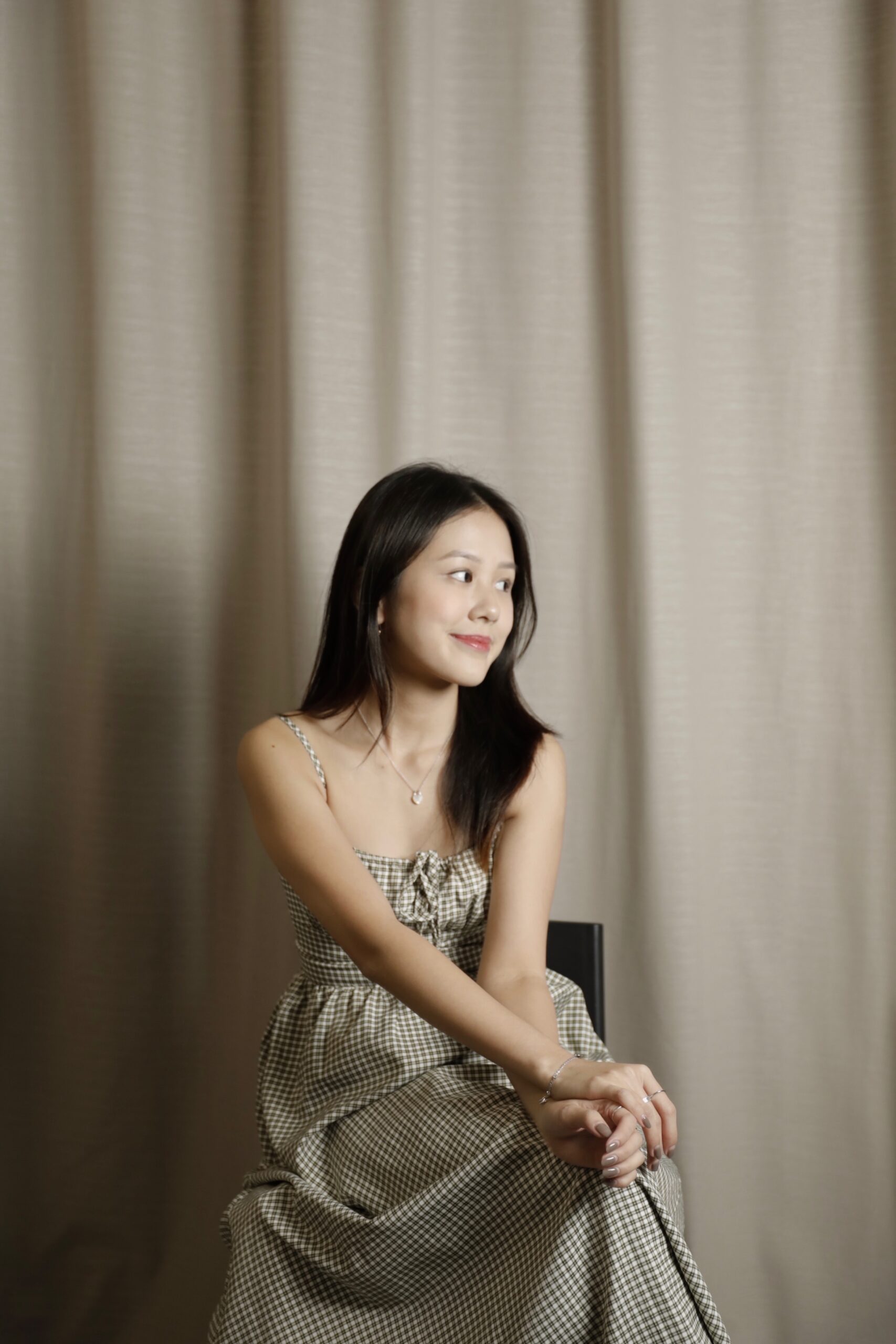The Path Less Travelled: A 24-year-old Taoist Priest’s Spiritual Journey
Have you ever doubted your own faith? This is a profound question that many grapple with at some point in their lives. This struggle with belief is no different for Lee Chee Tong, a 24-year-old ordained Taoist priest whose spiritual journey is quite unique – it sheds light on how exploring doubts can lead to profound personal discovery.
You might have come across Chee Tong’s videos on TikTok, where he shares his deep knowledge and belief in Taoism. In one revealing video, Chee Tong shared that he was once a Christian but left the faith due to his doubts about certain doctrines.
From Doubt to Discovery
Chee Tong reflected on what led to the transition: “There’s this whole idea of if you believe in Christ, you’ll go to heaven. But honestly, there were people in my church who I really wouldn’t want to see in heaven,” he admitted. “I tried to reconcile this faith but I slowly realised, it’s not about reconciling. I needed to find my answers elsewhere, so I started exploring out of Christianity.”
Growing up as a curious boy in an atheist family, Chee Tong immersed himself in various philosophies and ideologies, searching for a religion that would align with his understanding of the divine.
His search led him to a book called Tao Te Ching, a central Taoist text that was written as a guide for living in harmony with the Tao. The Tao (or Dao) is a profound concept that transcends human understanding, commonly understood as the fundamental nature of the universe or the way of existence.
This aligned with Chee Tong’s evolving view of the divine, prompting him to venture into both the philosophical and practical aspects of Taoism.
“Taoism cherishes life. Why are we worrying about death when we have a life now to live? If you’re a good person, then let your own merits take you to where you need to be.”
Becoming A Priest – From Dream to Reality
One peculiar night, Chee Tong recounts, an old man appeared in his dream and urged him to look for a specific temple in Singapore. After researching, he found the temple’s Facebook page and realised that they were starting a scripture chanting class taught by a Taoist master—an opportunity he seized to deepen his knowledge.

At just 24, Chee Tong was officially ordained as a priest by Quan Zhen Cultural Society. Alongside his spiritual pursuits, he recently graduated with a degree in Social Work at the National University of Singapore.

One of Chee Tong’s main motivations for becoming a priest was his desire for spiritual cultivation and interest in Taoist meditation. He now leads a group of youth in his society, engaging in community services and promoting interfaith understanding. They are also exploring the possibility of providing counselling to inmates in prisons.
A common question is how Chee Tong’s parents have reacted to his spiritual journey. He expresses immense gratitude, noting that he’s very thankful for his parents’ unwavering support since the beginning. They told him, “As long as you’re happy, you’re fine.”
Tackling the Evolution of Taoism
Recognising that nowadays, Taoism is sometimes associated with desires and superstitions, Chee Tong leverages social media platforms like TikTok to educate the younger generation about Taoist concepts and address common misconceptions. “Taoism offers lessons and wisdom that are so profound,” he asserts.
@quanzhentaoist Its a yearly reminder that u dunnid be scared of ghost #taoism #hungryghostfestival #7thmonth #ghostmonth #ghost #supernatural #origin #chinese #chineseculture #sgtiktok ♬ original sound – QZ Taoism
For example, he explained that the burning of joss paper is more of a cultural practice than a religious one. These practices, he notes, serve as guides to understanding the deeper wisdom and principles of Tao (Dao).
Through his efforts, Chee Tong hopes to demystify Taoism and emphasise its profoundly meaningful teachings, helping people appreciate its original significance.
The Hungry Ghost Festival
In light of the ongoing Hungry Ghost Festival, I asked Chee Tong a burning question that I had: “Does The Hungry Ghost Festival really mean that the hell gates are open?”
He responded with a laugh and shook his head. “The hell gates will never open because it cannot be opened by anyone.”
The Hungry Ghost Festival, also known as the Zhong Yuan Festival (中元节), falls annually on the 15th day of the seventh lunar month. According to Traditional Taoist beliefs, the festival is a time when the Earth Official, Di Guan Da Di (地官大帝), descends to Earth and pardons the sins of both the living and the dead.
During this period, many rituals are held, focusing on repentance and salvation for both the living and the dead.

However, attaining salvation isn’t as straightforward as it might seem. “We believe that in order to attain salvation, one must repent first,” Chee Tong explained. Through these repentance rituals, spirits are guided to understand the impermanence of life and the nature of reality. Only then can they receive salvation.
What is Spirituality?
We asked him to define “spirituality” and he offered a profound perspective: “Spirituality as a whole means our human innate nature to want to connect to something divine.”
Chee Tong compares his understanding of spirituality to the deep sense of awe one feels from being part of our vast and beautiful universe.
Is God Really Unfair?
When faced with struggles or setbacks, our natural instinct is often to question, “Why me?” or to think “God is so unfair.”
However, Taoism offers a different perspective through the Yin and Yang symbol, which represents the balance of good and bad. “As much as we want blessings, we must also be prepared for the bad to happen because they are two sides of the same coin,” Chee Tong shared.
This perspective led me to conclude that the challenges life throws at us may not be a sign of unfairness, but rather an integral part of the natural balance. In fact, these difficulties are opportunities for growth and appreciation of the blessings we receive in life.
Appreciating the Differences in Religions
We often shy away from talking about differences, particularly in religions, due to fear of judgement and criticism.
When I asked Chee Tong about approaching conversations with those who may not share the same beliefs, he shared his insightful perspective: “In the Taoist scripture, Zhuangzi, it says that if both parties are right, then there is no point in arguing. And if both are wrong, there is nothing to argue about either. If I am right and you are wrong, you will come to understand that eventually.”
Opening ourselves to such conversations not only broadens our understanding of society, but also helps us to appreciate the richness of differing viewpoints.
Something to Take Away
Chee Tong’s reflections bring us to a powerful conclusion: the divine is not confined to the external material world; it resides within us.
For those grappling with faith and unsure where to begin your spiritual journey, Chee Tong advises exploring the core teachings of religions and understanding their true meaning.
“I believe that all of us have a divine nature,” Chee Tong shares. He encourages us to look within, reflect on our true nature, and understand who we truly are.
Listen in on our full interview with him on YouTube:
References:
https://education.nationalgeographic.org/resource/taoism/














